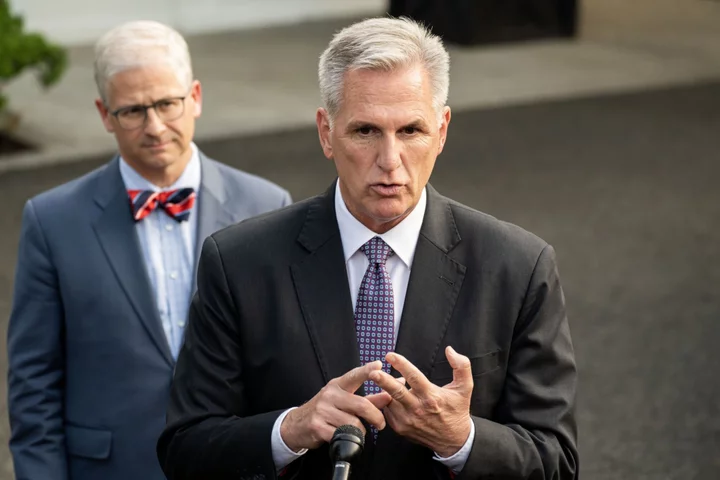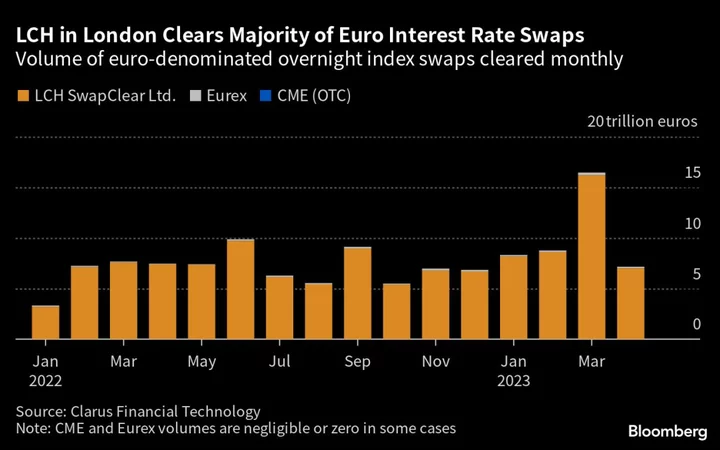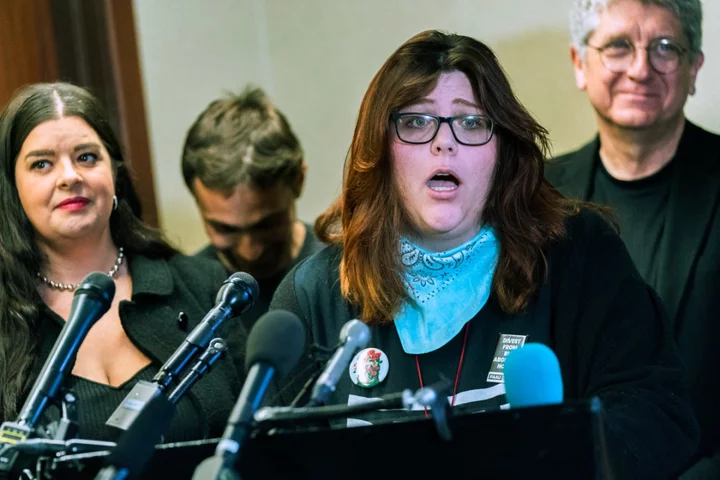President Joe Biden and House Speaker Kevin McCarthy are speaking by phone Saturday evening as their negotiators on a debt-limit deal rush to finalize an agreement to avert a catastrophic default, two people familiar with the matter said.
The two leaders’ hand-picked negotiators have been working around the clock to resolve the threat of a default, which Treasury Secretary Janet Yellen says could happen June 5.
Republican Patrick McHenry, one of McCarthy’s chief negotiators, said most of the remaining issues, which he described as “major disagreements,” must be resolved directly by the two leaders.
The call began at about 6 p.m. in Washington.
“It’s hours or we’re here for more days,” McHenry said ahead of the call.
The two leaders last met in person on Monday. It’s unclear whether they’ve spoken by phone since then.
Biden has spoken with Senate Majority Leader Chuck Schumer and House Democratic leader Hakeem Jeffries on the emerging deal, one of the people said.
If a default did occur, economists project it could send the US into a recession, with widespread job losses and higher consumer borrowing costs spilling into the coming election year.
“The current standoff over the US debt ceiling has the potential to wreak more havoc on the economy than any previous go-around,” wrote Bloomberg Economics chief US economist Anna Wong.
Read More: US INSIGHT: What the Fed Will and Won’t Do If US Defaults
While negotiators continue to haggle, Treasury’s cash balance is dwindling rapidly. It fell to $38.8 billion as of Thursday, the lowest since 2017, according to data published Friday.
McCarthy has pledged to abide by a 72-hour rule to allow lawmakers to review the text before a vote. McHenry said Republicans aren’t budging on that.
That rule, combined with procedural hurdles in the Senate, risk pushing Congress right up to the June 5 deadline.
Work requirements for anti-poverty programs such as Medicaid — pushed by Republicans and opposed by Democrats — continued to be an unresolved issue Saturday night, McHenry said. So, too, is language to ease permitting for energy projects.
“Those things are big issues, there’s no way to sort of gloss that over,” McHenry said. “So there’s big and thorny issues that we have to reconcile.”
Any deal, McHenry said earlier Saturday, must show a trend of lower federal spending over multiple years.
Author: Jennifer Jacobs, Anna Edgerton and Alicia Diaz









